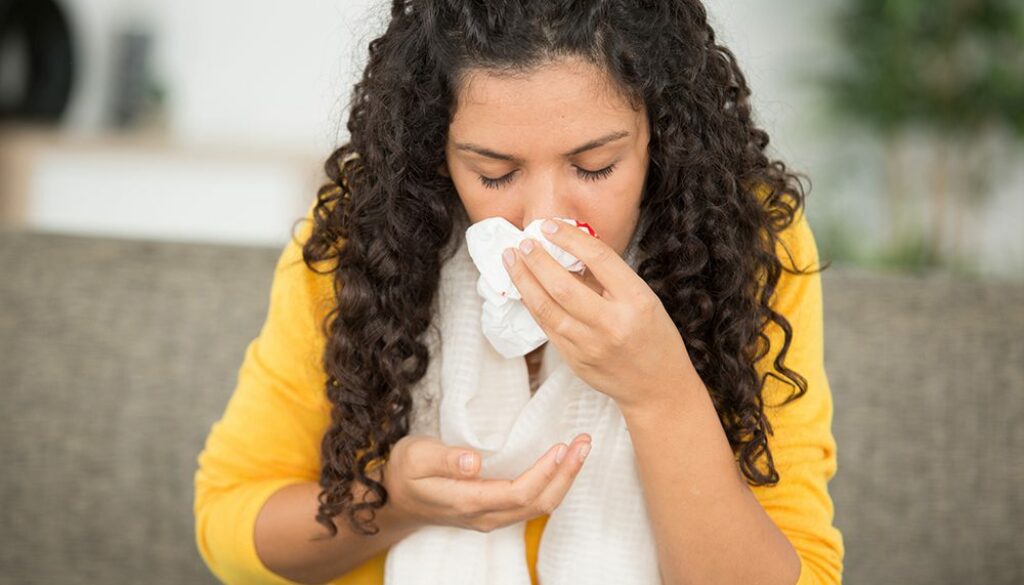Nosebleeds: Picking apart this common condition
Nosebleeds are super annoying, inconvenient, and sometimes embarrassing, especially since they can happen anytime and anywhere. As we inch closer to fall and subsequently winter, the air will become drier and because of that nosebleeds can happen more frequently. But why is that so? CMC Ear, Nose, and Throat is breaking down why nosebleeds occur and how you can stop them.
The inside scoop on your nose
There are tons of small blood vessels inside your nose. Since the lining of these cavities is thin, even the most minor trauma can damage and even burst the blood vessels underneath. Something as simple as picking your nose could induce a nosebleed.
The most common contributor to nosebleeds has to do with the air you breathe. Arid climates, heated indoor air, and cold, drier air can dehydrate the lining inside your nose causing it to crack and expose the delicate blood vessels underneath.
Some people may have more frequent nosebleeds because of other contributing factors. Allergies and sinus infections can lead to vigorous nose blowing that can cause the blood vessels of the nose to rupture. Also, conditions like hemophilia which prevents blood clotting can contribute to nosebleeds. Even some medications can affect how your blood clots, such as anti-inflammatory drugs and anticoagulants.
How to stop a nosebleed
If your nose starts to bleed, make sure you sit upright so that you are elevating your head above your heart. Tilt your head forward and press against the tip of your nose. This applied pressure pinches the blood vessels which slows the bleeding. If this isn’t working, try pinching just above your nostrils. This is less comfortable but will also help restrict the flow of blood. After 10 minutes the bleeding should subside. Remember to not lean your head backward because you want to avoid swallowing it.
There are a few easy things you can do to prevent nose bleeds. It’s important to keep the lining of your nose moist. You can introduce moisture by using a saline nasal spray or by gently applying a light coating of petroleum jelly or an antibiotic ointment to the inside of the nose with a cotton swab. You can also use a humidifier to add moisture to the air in your home, particularly in your bedroom when sleeping. If you smoke, this is another reason to stop. Smoking irritates and also dries out the inside of your nose.
Should I see a doctor for my nosebleeds?
There is no need for concern if you only experience the occasional nosebleed. However, if they occur on a more frequent basis, it may be time to see an Ear, Nose, and Throat doctor (otolaryngologist.) An ENT physician can identify the cause of the bleeding, as well as the severity. From there, they can create a treatment plan to address your issue. That plan may include medications, packing of the nose, cauterizing blood vessels, and/or surgery.
Seek immediate emergency care if you cannot stop the bleeding or if there is so much blood, you are experiencing vomiting or trouble breathing. Also, seek emergency care if the bleeding is the result of an accident or a direct hit to the face or head.
ENT near me
If you or a loved one suffers from frequent nosebleeds, CMC Ear, Nose, and Throat is here to help. Our board-certified ENT physicians provide the helping hand and advanced solutions to treat nosebleeds and other issues that affect the nose, ears, and throat. Call us today to schedule your appointment and find the relief you need.






